About Publications Library Archives
heritagepost.org

Preserving Revolutionary & Civil War History

Preserving Revolutionary & Civil War History
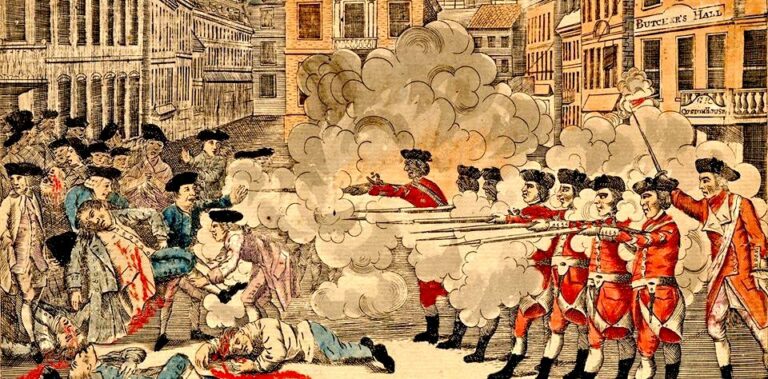
Author: Deacon John Tudor Date:1770 Annotation: By the beginning of 1770 there were four thousand British soldiers in Boston, a seaport with only 15,000 inhabitants. On the evening of March 5, crowds of day laborers, apprentices, and merchant sailors began to pelt British soldiers with snowballs and rocks. A shot rang out, and then…
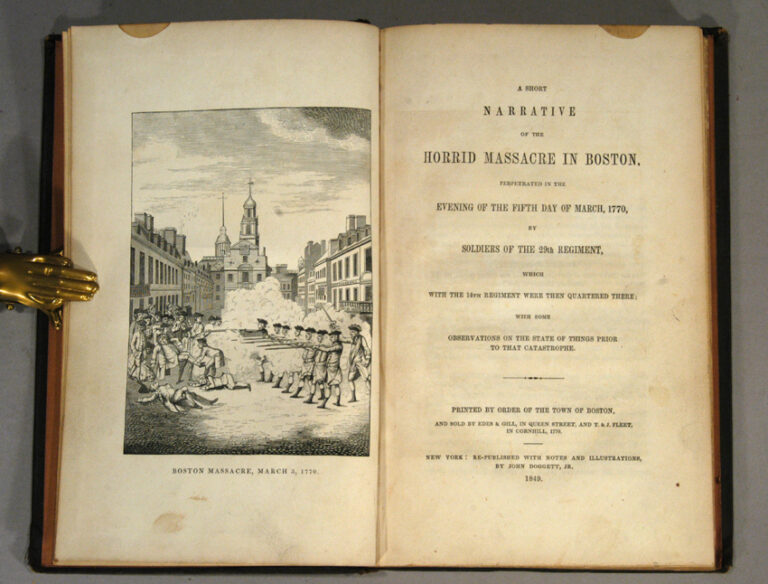
Date:1770 Annotation: An anonymous account of the Boston Massacre on the evening of March 5, 1770. Document: It may be a proper introduction to this narrative, briefly to represent the state of things for some time previous to the said Massacre; and this seems necessary in order to the forming a just idea of the causes of…
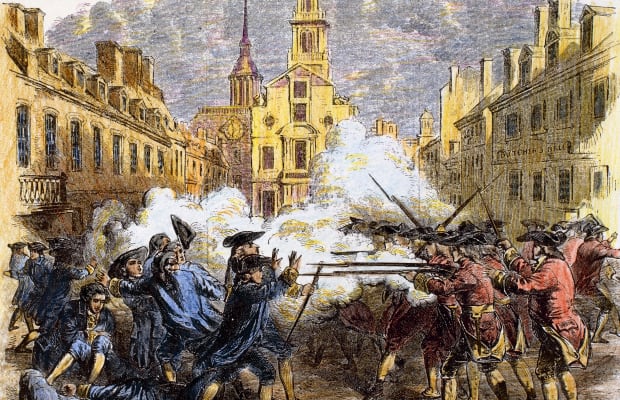
Date:1770 Annotation: On March 5, 1770, a 16-year-old barber’s apprentice named Edward Garrick insulted Hugh White, a soldier of the 29th Regiment on sentry duty in front of Boston’s Customs House. The sentry gave the apprentice a knock on the ear with the butt of his musket and a jab with his bayonet. The boy ran…
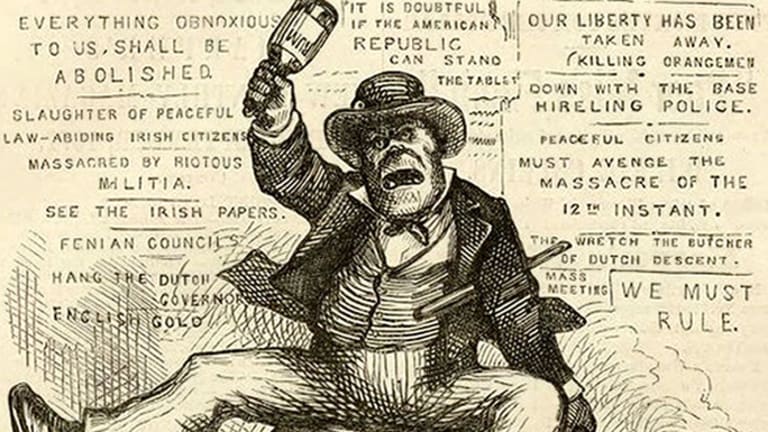
Author: Charles Thomson Date:1769 Annotation: Born in Ulster, Charles Thomson (1729-1824) came to Philadelphia as a young schoolmaster. During the 1765 Stamp Act Crisis, Thomson became a significant figure in local politics, orchestrating resistance to the measure in Philadelphia. Over the next decade, Thomson continued to be a central figure in the organization of…
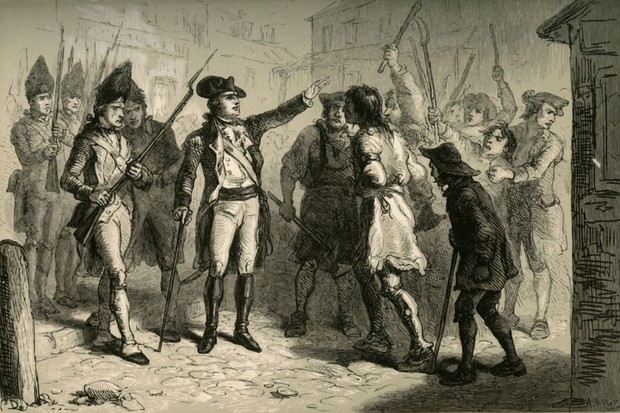
Date:1769 Annotation: The North Carolina Regulators was a popular movement in the 1760s that challenged the colonial government, the powerful landowners, and the officials that dominated its offices. The Regulators were infuriated by the rising taxes, fees, and bad land dealings that were beneficial to the affluent citizens and left many empty-handed. Herman Husband was one…
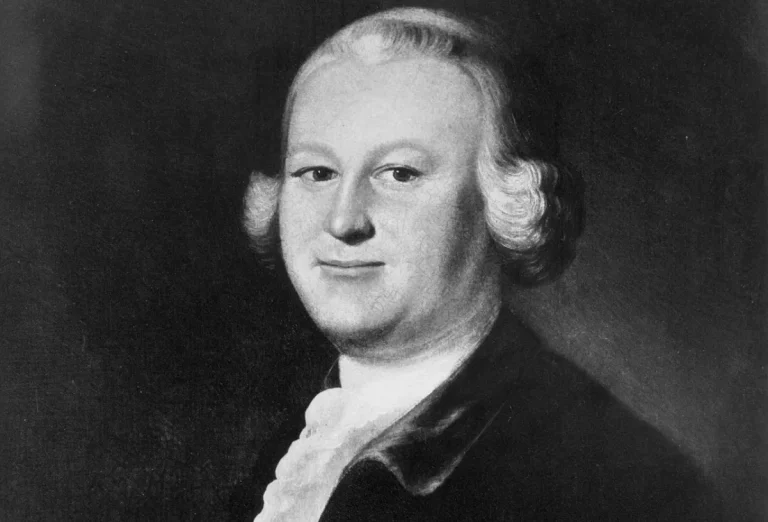
Author: John Easson Date:1769 Annotation: In this selection, James Otis (1725-1783), one of the early leaders in the colonists’ struggle for independence, informs Catharine Macaulay (1731-1791), an English liberal sympathetic to the colonies’ cause, about the situation in America. A year before he wrote this letter, Otis had rejected in outspoken terms the British…
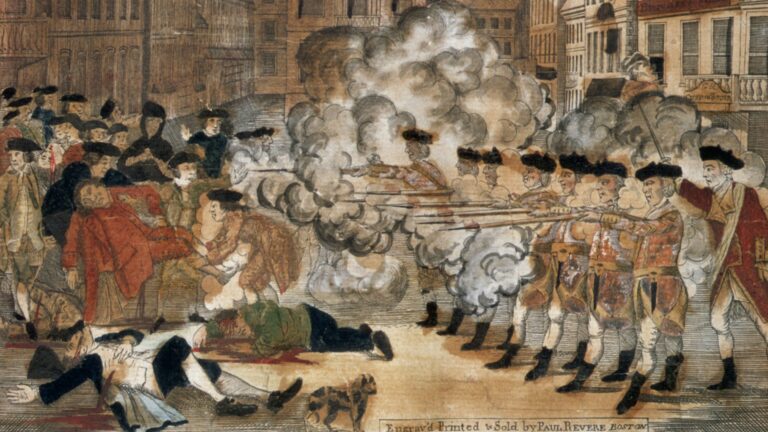
Author: John Hancock Date:1768 Annotation: Based in part on Benjamin Franklin’s arguments before Parliament, Charles Townshend (1725-1767), the British Chancellor of the Exchequer, believed that the colonists would find a duty on imported goods more acceptable than the Stamp Act, which taxed them more directly. In 1767, Parliament passed the Townshend Acts, which placed…
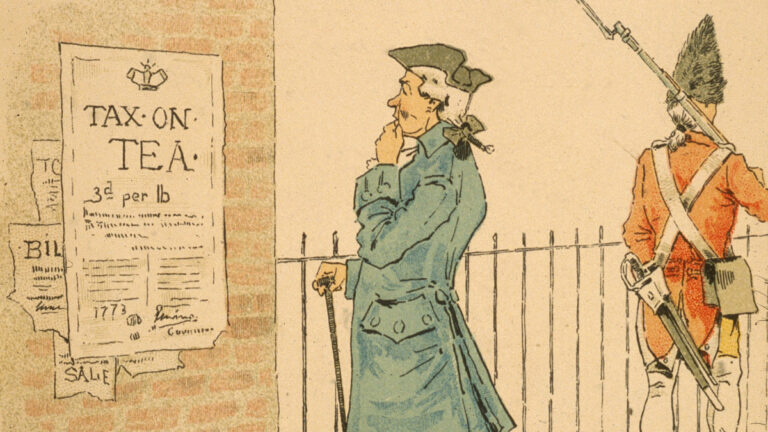
Date:1767 Annotation: Chancellor of the Exchequer, Charles Townshend, imposed new duties on imports of glass, lead, paint, paper, and tea to the colonies. The Townshend Acts also expanded the customs service. Revenue from the acts paid the salaries of colonial governors and judges and prevented colonial legislatures from exercising the power of the purse over these…
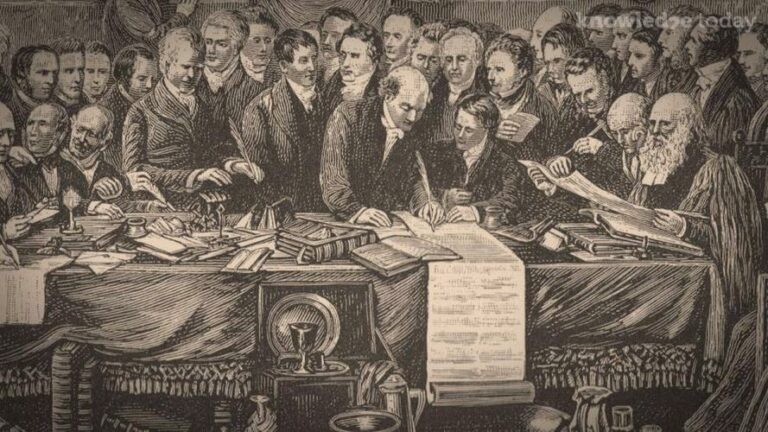
Date:1766 Annotation: The Declaratory Act of 1766stated that the British Parliament’s taxing authority was the same in America as in Great Britain. Document: An act for the better securing the dependency of his majesty’s dominions in America upon the crown and parliament of Great Britain. Whereas several of the houses of representatives in his Majesty’s colonies and…

Date:1766 Annotation: Examination of Dr. Benjamin Franklin In the House of Commons in 1766. Document: Q. What is your name, and place of abode? — Franklin, of Philadelphia. Q. Do the Americans pay any considerable taxes among themselves? — Certainly many, and very heavy taxes. Q. What are the present taxes in Pennsylvania, laid by the laws…